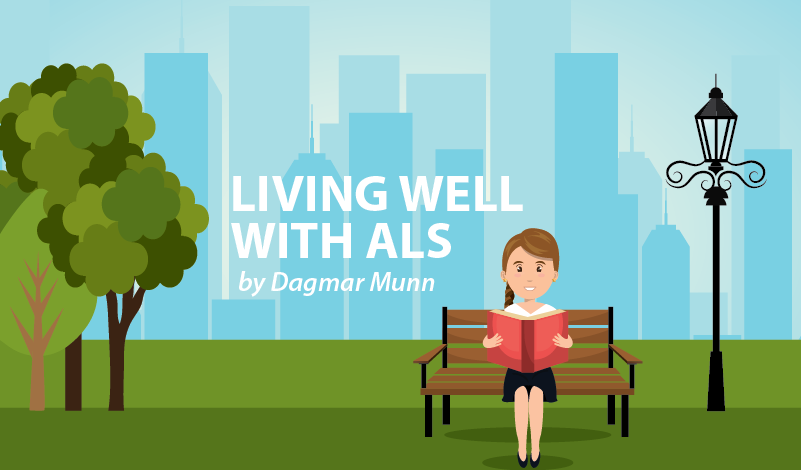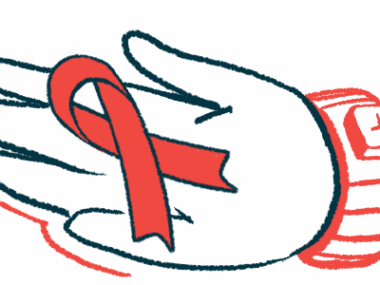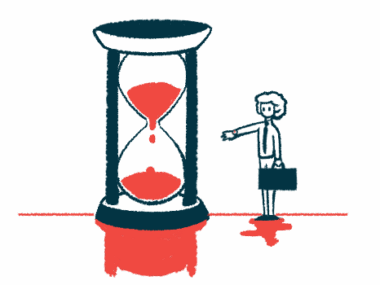Time Matters
Written by |

Among the many challenges I experienced during my early months with ALS was its effect on my perception of time. Before ALS, I pretty much meandered through life in full confidence that many more years lie ahead of me. But with the onset of ALS, all that changed. The elephant in the room became time. When I heard the words two- to five-year life expectancy, time suddenly became very important!
I had two immediate reactions.
I fell into the common body-mind stress response of fight-flight-freeze. And, I began lamenting, if only I’d known that was the last time I would ever (dance, jog, swim, etc.), I would have paid more attention!
Sound familiar? Here’s how I worked my way out of both states.
Flight-fright-freeze
I remembered from my wellness training that the body-mind stress response of fight-flight-freeze is hardwired into our brains. It’s there to help us react quickly to get out of or avoid dangerous situations. Brain chemicals such as adrenaline and cortisol are released, our bodies tighten up and we conserve needed energy, so our immune systems shut down. All helpful when having to, say, exit a burning building. But not helpful for the long-term stress of having to accept and live with a serious illness.
I knew that worrying, feeling anxious and angry plus having a depressed immune system would be no help to my situation. Neither was withdrawing from friends and family and just sitting, sitting, sitting.
My first step to stop my stress response was to go directly against the tide of emotions washing over me. I practiced deep, relaxed breathing, followed a daily routine of movement, and began following guidelines such as these found in “Living with ALS.” Habits include good nutrition, regular exercise, proper medication, use of medical equipment when recommended, and attending an ALS clinic and its support groups.
Slowly, I changed my attitude from fighting ALS to learning to live with ALS.
Life on auto-pilot
We all fall victim to living each day on auto-pilot while life happens all around us. We pay attention instead to smartphones and the constant babble in our heads. Days are lost. Years are lost. Time is lost. Every single moment we are worrying about the past or the future is a moment not paying attention to now.
I’ve heard it said that, “My attention is a currency that I have to spend wisely,” and I took those words to heart.
No more not paying attention. No more lost memories. I decided to learn to live in the now and be mentally present for everything yet to come. Living in the now is also called mindfulness, and I knew that meditating was an excellent way to learn to be mindful. But, to tell you the truth, I didn’t feel I had the time to meditate! I had ALS, and the clock was ticking!
Luckily, I found the program developed by Ellen Langer, called “Active Mindfulness.” It’s a kind of fast-track method; instead of practicing how to be mindful, you just do it!
Here’s a quick example: While you are reading this sentence, allow your brain to be aware of the sounds in the room around you, feel the weight of your body on the chair underneath you, the temperature of the air on your skin. Continue to read while continuing to feel an awareness of sounds, the air, and your body. That shift in awareness is active mindfulness. As opposed to just reading and blocking out what’s happening around you. Langer, a PhD, refers to that state of mind as being mindless.
She received a grant from the ALS Association to study mindfulness and ALS, and the results were impressive. Participants reduced their anxiety, depression, burnout, and progression of ALS symptoms. Better yet, participants increased memory, quality of life, their ability to cope, and overall well-being.
Priorities
I’ve since made it a priority in my life to manage my stress and practice active mindfulness. And, yes, I even have created newfound time to meditate! It’s all become a reinforcing loop. The more I pay attention, the more I notice and hold dear the deeply satisfying events happening in my life.
Make this year the one you are fully present for your most memorable moments. Not only will it be a gift of health to your body and mind, but also it will be a very wise way to spend your time.
***
Note: ALS News Today is strictly a news and information website about the disease. It does not provide medical advice, diagnosis, or treatment. This content is not intended to be a substitute for professional medical advice, diagnosis, or treatment. Always seek the advice of your physician or other qualified health provider with any questions you may have regarding a medical condition. Never disregard professional medical advice or delay in seeking it because of something you have read on this website. The opinions expressed in this column are not those of ALS News Today or its parent company, Bionews Services, and are intended to spark discussion about issues pertaining to ALS.







Jane Agnello
I have no life-threatening or painful ailments, but at age 85 I am mindful of a certain decline. Your articles are very helpful in making the most of my days.
Dagmar Munn
Thank you Jane - - our strength is that we support each other ?
Lou Rosen
Thank you for the wonderful suggestions, reminding me to live in the moment. I can no longer speak and that is a bummer since I pretty much made my living with my voice. I try to focus now on being thankful for what I can do rather than what I cannot do anymore. I am also thankful for my family, my friends and the ability to think and write. Overall time is short but my days seem longer when I appreciate each moment.
Brian Stanfield
Thank You Dagmar! I really needed to read this.
Mike L
Great article! This echoes the biggest change in my wife and my mindset since since my diagnosis. Rather than thinking about longer-term things (in a few years we’ll take that trip, or when we retire we’ll do that), we have become much more focused on living in the “now”. ALS is a completely different mindset than cancer, which I had 25+ years ago. With cancer, so much of your mindset is on hope and getting through it, and moving on to the other side and back to normal. With ALS, and the lack of a cure, you don’t have that luxury. None of us are guaranteed months, years, or decades more, so we have to make the most of now.
Karen "Robbie" DeSantis MSW, CM
As the Case Manager and Social Worker for a busy ALS Clinic, I value the suggestions given in this article! We all benefit from being mindful and, as outsiders to ALS,watching and sharing in their journey brings time, place, and person into exquisite focus. Meeting this disease head on, embracing the positive, and finding gratitude in our here and now is a choice every one of us face every day. Together, we can help one another choose life.